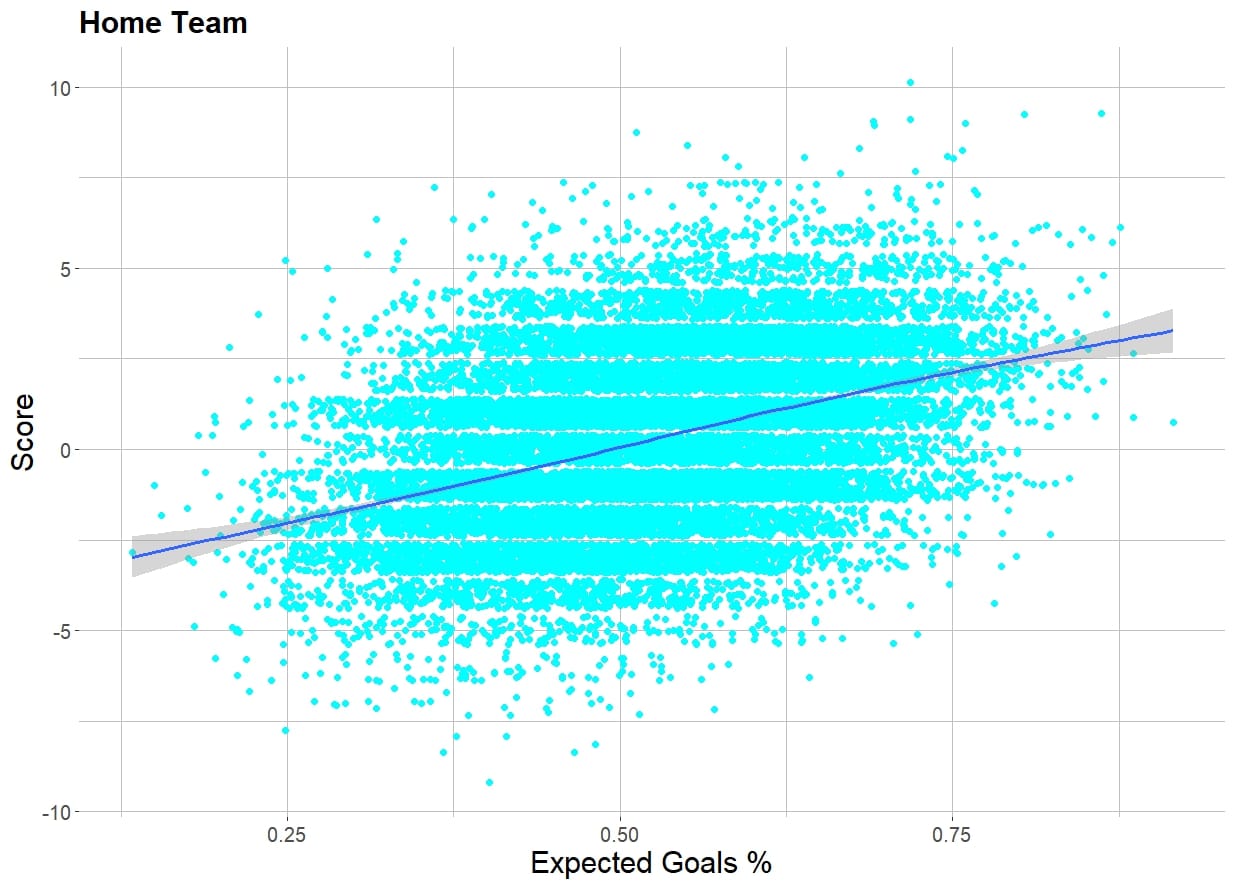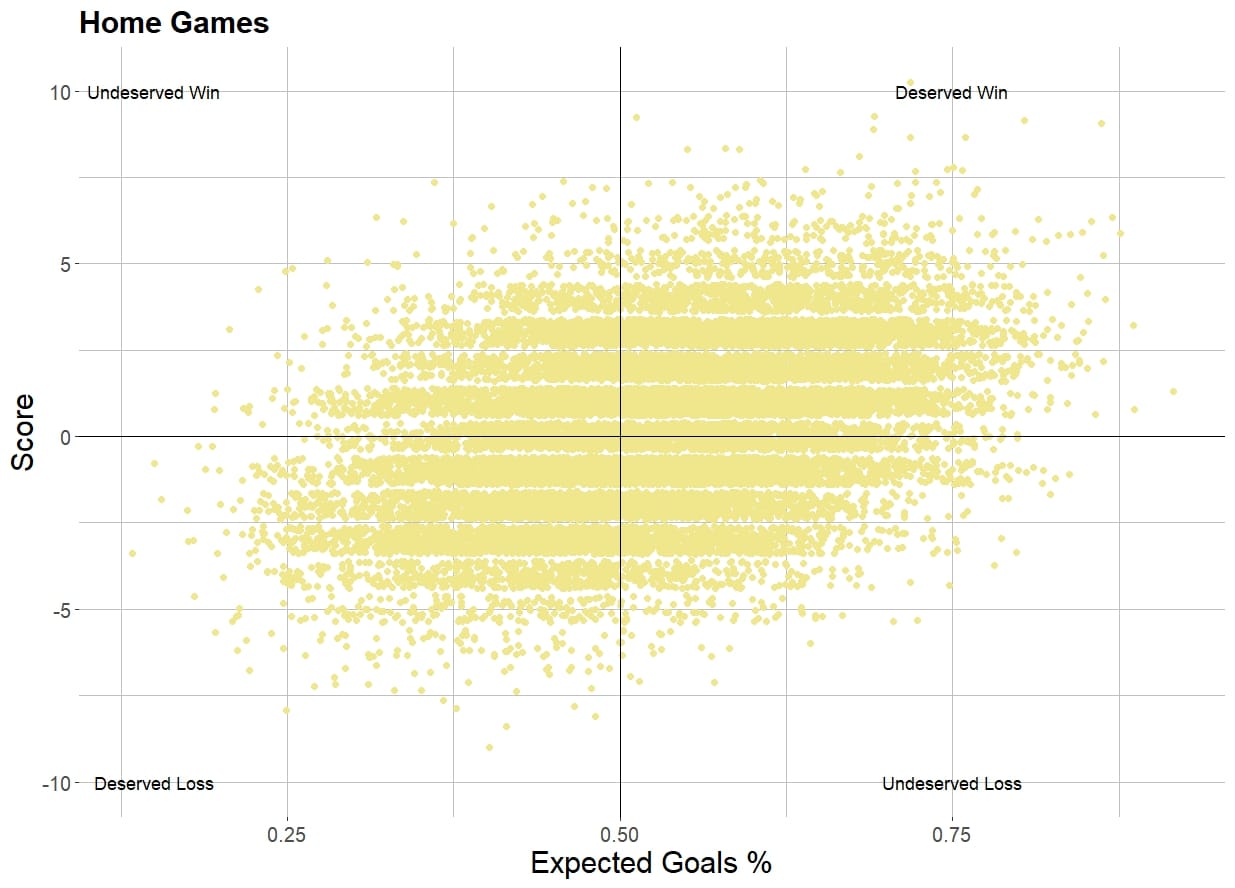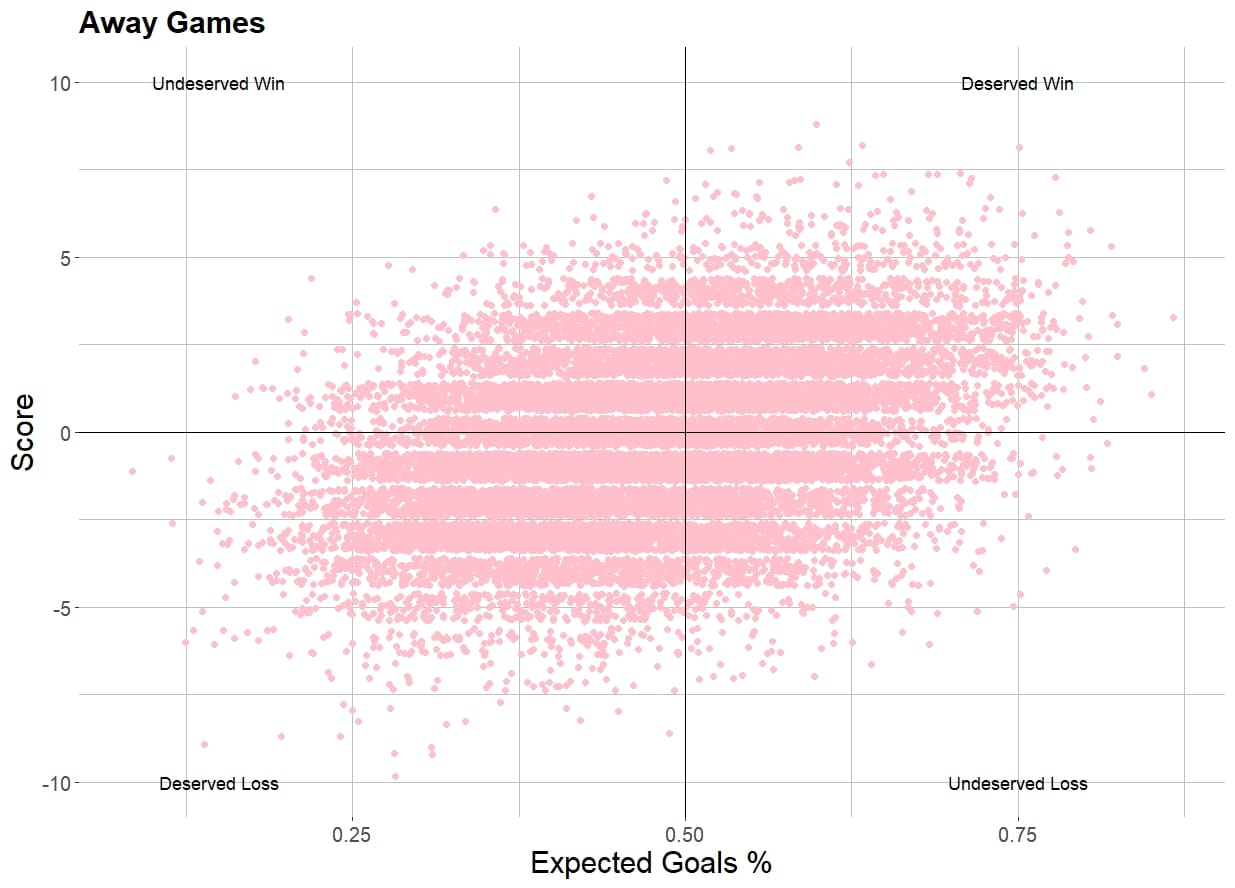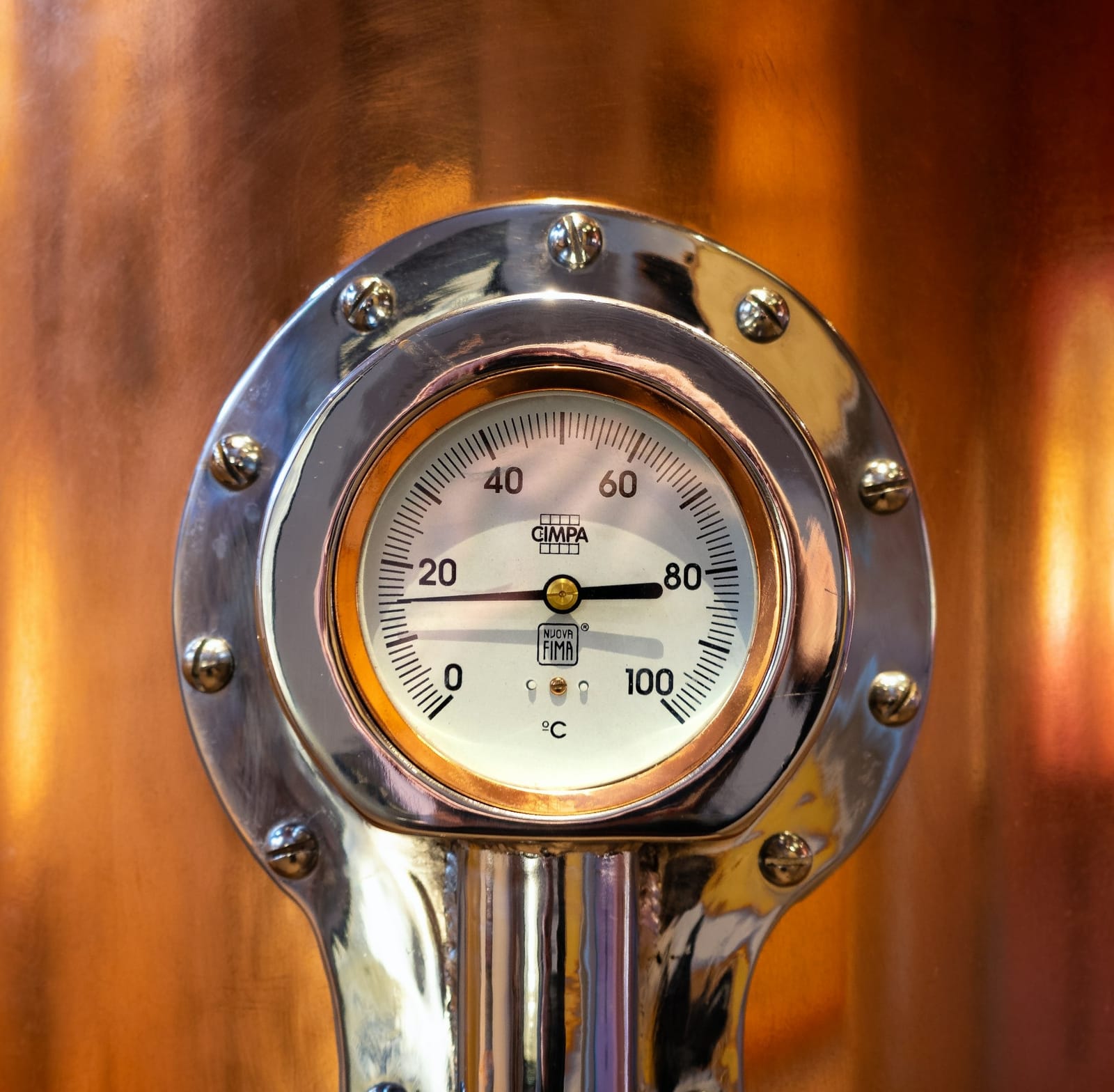I like to say: "There is no deserve in hockey." What I'm getting at usually is that there is always a lot of random chance in the game because of the nature of how hockey is played, but mostly because goals are such rare events. As a basketball game unfolds and the points pile up into three digits, there's more relationship between quality of play and outcomes than there is in hockey.
This early in the NHL season, you see some big-goal games more regularly than in the season as a whole, but when we say big in hockey, we mean six or even 5 for one team. Still well within the area where random forces hold sway. The mix of luck and skill that decides a hockey game tilts to luck in close games and the NHL has a lot of close games.
There is in everyone who enjoys the game a desire to have every goal come with a story that upholds natural justice. Someone is at fault or gets credit. You either deserved to get that goal or to get scored on, and it takes a really obvious fluke like the puck bouncing in off someone's butt to stop that view of things. A little less obvious is that we want every shot taken to also follow the laws of natural justice. It's either a good shot or a bad one or the defence or goalie were good or bad. There's a hero and a villain in every event on the ice. And someday when we can measure pre-shot movement and the position of every player on the ice and puck tracking and the humidity of the air and ... sure. Someday every event will have an explanation. Justice will prevail. It will all make sense and we'll always know who to blame.
Until then, we have some imperfect measures available to us to connect how a team plays with the outcome of a game. Moneypuck puts it all into their deserve to win meter which I like rather a lot as a quick one-off look at how the game is going.
Lately, I've been looking at the way probability gets talked about in hockey. Most of the things irritatingly called "analytics" are measures of probability in some way like the deserve to win thing or draft pick valuations or the way we talk about the probability of future success by measuring shots. And people are, naturally, bad at turning probabilities into feelings. "It could even be a boat" is a joke in the first place because we all know someone who can't distinguish possible from probable, and we all know we do it ourselves some of the time.
So when you're watching the Leafs play and you look at whatever site you like that gives you in-game Corsi or Expected Goals, what does that translate to inside your head and your heart? Can you expect to win if the team is playing well? And I mean real expectations, not performative pessimism where it's so Leafy and we can't have nice things. I mean unemotional expectations based on those measurements.
Backing up a little: Corsi – sometimes erroneously called shot attempts (there is no try only shoot or do not shoot) is understood to correlate with success in hockey. Success is scoring more goals than the other team and getting more points. This correlation is real, it's predictive, but it isn't perfect. Expected Goals models, take shots (unblocked and called Fenwick) and weight them for type, and a lot of these models show greater ability to predict winning. It's not a massive improvement, though.
All that correlating and predicting is at the season level. You need 25-ish games played to be able to take the team's Corsi % or Expected Goals % seriously. And then there's this confusing thing where, as the season winds down, the predictive value disappears. When there's only 10-ish games left, the season's percentages don't predict outcomes at all. There's too much potential for random variation in so few games. Which then brings us neatly to how useful is this information in one game? Or during a game.
That of course depends on what question you're trying to answer. If the question is: are my eyes deceiving me, or are the Leafs actually outshooting the other team but taking really terrible shots? That's an in-game Corsi and Expected Goals question. As are all variations on the "are my eyes deceiving me" genre. The answer is often yes, they are, particularly when you're sure you don't need to check.
If the question you want answered is: will the Leafs win? Well, that's a different matter altogether. But how good (or bad) are these measures at predicting the outcome of a single game? What should you expect if the score is tied in the second and the deserve to win meter has the needle bouncing ever deeper into the win side?
Moneypuck can help answer that. They have a data page which allows you to download NHL game data in all sorts of forms, and there are gamelogs, complete with their Expected Goals model and other adjusted measures going back to 2007.

This is every game from the home team's perspective. Obviously scores don't come in fractions, but the dots are jittered out of alignment so you can see the scale of the data. This is just under 19,000 games.
There is clearly a correlation at the game level. I tried Corsi, adjusted Corsi, five-on-five, and the above, which is all situations Expected Goals, and this is the strongest correlation I found (there are other measures that involve adjusting for various things that I didn't try). There is absolutely game-in, game-out, a relationship between the Expected Goals a team manages and the outcome. But it's weak.
Look at this same blob of game results in a different way:

The "deserved" quadrants have more dots. And yet the "undeserved" quadrants are very, very full. You might be able to see that the deserved win has the most dots. If you're less good at reading dot densities (like me), this might help:

Now the loss is biggest. We can actually see that home-ice advantage is in the mix of reasons why a team wins or loses, and the away team just loses more often.
But in a given game – pick a dot, any dot – and the goalie is not the grey average fellow of an Expected Goals model. The skaters are not performing precisely as average shooters. They aren't performing precisely at their own career norms either. The puck bounces where it will – or if you want to believe in a just universe, you can say that there are things we just haven't measured yet.
But when you look at the game midway through and read the Expected Goals or the Corsi, or the very unreliable Shots on Goal, and set your expectations – well, don't burn too hot or cold if the team doesn't do what they "should" and you don't get the result you "deserve".
The actual meter, which uses a more complex system of simulation gets this result overall:
While the Meter is not meant to be a prediction of who will actually win the game, teams that finish the game at above 50% on the meter have historically won 64% of games.
Aside from getting angry if a team doesn't win when they should, I think expecting Expected Goals to be an infallible horoscope for a game outcome leads fans to enjoy a win less when it wasn't deserved. What's in that undeserved win, though? Goals scored through individual effort and skill, as well as goaltending that was as good as it needed to be. And skill and commitment from all sorts of places. These aren't things to be grudgingly accepted. They're the base elements of the game.
I keep seeing people disappointed that the Leafs don't dominate every game in some way. That they aren't the best team in the NHL at every moment. That's setting up a condition that can only result in failure and disappointment. But even less extreme expectations – that a win has to come wholly from good play and skill to be worthy – is cheating yourself out of the happiness when your own goalie steals it or the skill of the shooters make up for some defensive blunders.
Some people think measuring the shots in a game ruins the fun. I think having the wrong expectations sets you up for disappointment or, at best, grudging and diluted happiness. Anything really can happen in a hockey game. The game itself is the closest you'll get to "it could even be a boat" coming true. That's why we watch them.
There is no undeserved in hockey.







Comment Markdown
Inline Styles
Bold: **Text**
Italics: *Text*
Both: ***Text***
Strikethrough: ~~Text~~
Code: `Text` used as sarcasm font at PPP
Spoiler: !!Text!!